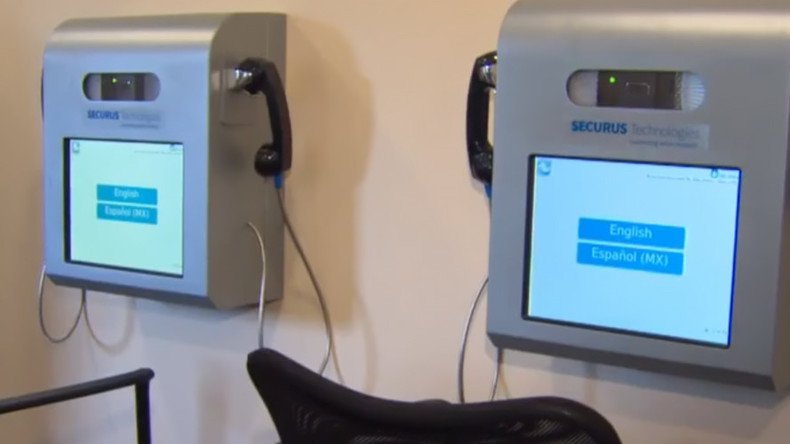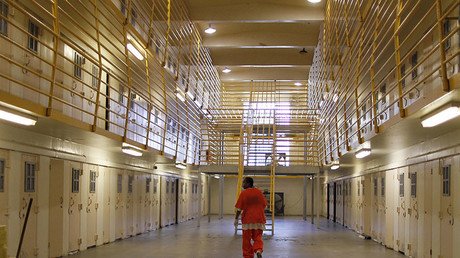Massachusetts jail to ban prisoner visits for video conferencing

A jail in Dartmouth, Massachusetts is ending in-person visits to inmates and replacing them with Skype-like video calls. The move is supposed to crack down on drug smuggling, prison officials said.
In the coming weeks, visitors who wish to talk to their loved ones at the Bristol County House of Corrections will be taken to a trailer set up on the prison grounds and outfitted with rows of video conference equipment, according to Boston’s WCVB-TV.
"We want to keep visitors out of the secure portion of our jail," Bristol County Sheriff's Office spokesperson Jonathan Darling told WCVB. He said they’ve had issues with drugs being left in the visitor’s room.
Banning real-life jail visits punishes families. Prisons are charging family members to video conference w/ inmates https://t.co/SzLqpmF9Qp
— H. Howell Williams (@hhowell_wms) August 18, 2016
Darling told Quartz that it was also about “convenience” for the families, who now won’t have to go through security to visit their loved ones. He said the visitors weren’t losing any contact with the inmates, because up until now visitors and inmates were separated by glass barriers.
Remote video conferencing will also be possible, but like phone calls from the jail, visitors will be charged for video calls. Fees have yet to be determined.
Prison reform groups are outraged, arguing that support from families has been proven to help inmates reintegrate into society. There is also the issue of glitches in video connections.
"As any Skype user can tell you, video communication may provide a benefit to people who are far apart or unable to travel, but it's no substitute for being in the same room with a person you love," Aaron Wolfson, a spokesperson for the American Civil Liberties Union (ACLU) of Massachusetts, told WCVB. "Cutting off the human contact of in-person visitation is cruel to people in jail, their families and loved ones."
Wolfson said the ACLU has concerns regarding the cost of video visitation which can be "prohibitively expensive" for poor families.
The Bristol County House of Corrections will become the 1st Massachusetts prison to end in-person visits, only offering video calls. pic.twitter.com/OLDhf6QdKz
— Only In Boston (@OnlyInBOS) July 24, 2017
Computer-based visitation is a growing trend at prisons across America. More than 13 percent of correctional facilities used the software last year, according to federal statistics. The majority of these jails have replaced in-person visits with video visitation, just like in Bristol County.
California has experimented with video calls, and Governor Jerry Brown vetoed a bill that would have forced state prisons to keep in-person visits.
In a 2015 report, the nonprofit Prison Policy Initiative found that the majority of facilities that introduce video visits end up banning face-to-face contact, creating situations in which an inmate’s family might fly hundreds of miles only to see the inmate on screen.
If “visitors” chose to dial-in from a remote location, the fees can be exorbitant, sometimes as high as $1.50 a minute. In many cases, the facility gets a kickback from the company supplying the video-calling infrastructure.
In some cases, prison telecommunications companies require in their contracts that the facility stop allowing in-person visits, according to Quartz.
Securus Technologies, which will be implementing the Bristol County system, abandoned that requirement after a public uproar.
Massachusetts state senator Mark Montigny proposed a bill in January that would have prevented Bristol County for implementing the new policy. It was referred to the state’s public safety committee.
This is not the first controversial decisions by Bristol County Sheriff Thomas Hodgson. He’s also mulled the idea of charging prisoners a daily incarceration fee of $5, or sending “chain gangs” to work on building the wall on the border between US and Mexico.













